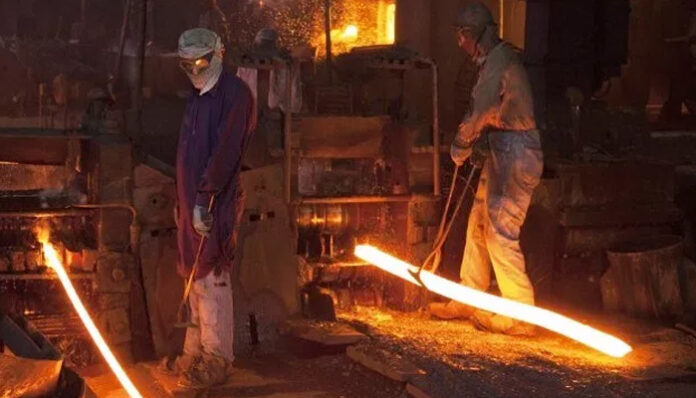ISLAMABAD: The drastic increase the prices of raw material has created a crisis-like situation in the struggling steel sector of Pakistan, as major players have been declaring heavy losses for the last two years, absorbing the impact of input costs without passing it on to the end consumers.
“However, it is now becoming increasingly difficult for the steel sector to absorb the latest impact of growing prices of raw material internationally,” said Pakistan Association of Large Steel Producers (PALSP) in statement on Monday, urging the government to remove all duties on raw material to offset the impact of drastic increase in the cost of raw material, which is now crossing $400 per tonne.
“Contrary to the misleading statement on part of a body of developers, domestic steel bar prices have dropped over the past two years by 8pc in dollar terms, from $806 in 2018 to $746 today. The reason steel prices have increased since 2018 in PKR terms is primarily due to a 45pc depreciation of rupee against dollar, which resulted in increased prices of imported raw materials,” the statement read.
PALSP informed that since 2018, electricity costs have risen 56pc while the cost of gas has gone up 116pc. Between January 2018 and early 2020, interest rates had doubled from 6pc to 13pc, increasing financial costs of an industry that is highly leveraged by nature. Finally, the Covid-19 lockdowns exaggerated the losses made by the steel industry and led to a large increase in trade debts, resulting in higher borrowings and financial costs.
Despite the above challenges, the steel industry refrained from passing on a large portion of these cost increases and reduced profit margins to continue supplying steel bars at a competitive price to the construction sector, PALSP said. This is evident from profit margins of steel bar manufacturers that shrunk from approximately 8pc to 3pc between 2018 and 2020.
“While facing severe challenges, industry leaders also invested billions in bringing latest European technology to reduce energy consumption and improve product quality; many players increased capacity to attain benefits of economies of scale and cater for local demand.”
PALSP observed that steel prices across the world would continue to grow in the near future. “However, steel companies also believe this is a temporary phenomenon. As the Covid-19 disruptions ease, raw material prices will also normalize.”
But with industry margins as low as 3pc, companies have no choice but to pass on these increases to consumers, the association said. With over 300 companies manufacturing steel bars, the steel bar market is highly competitive and reduction in costs would rapidly translate into lower prices in the local market.




